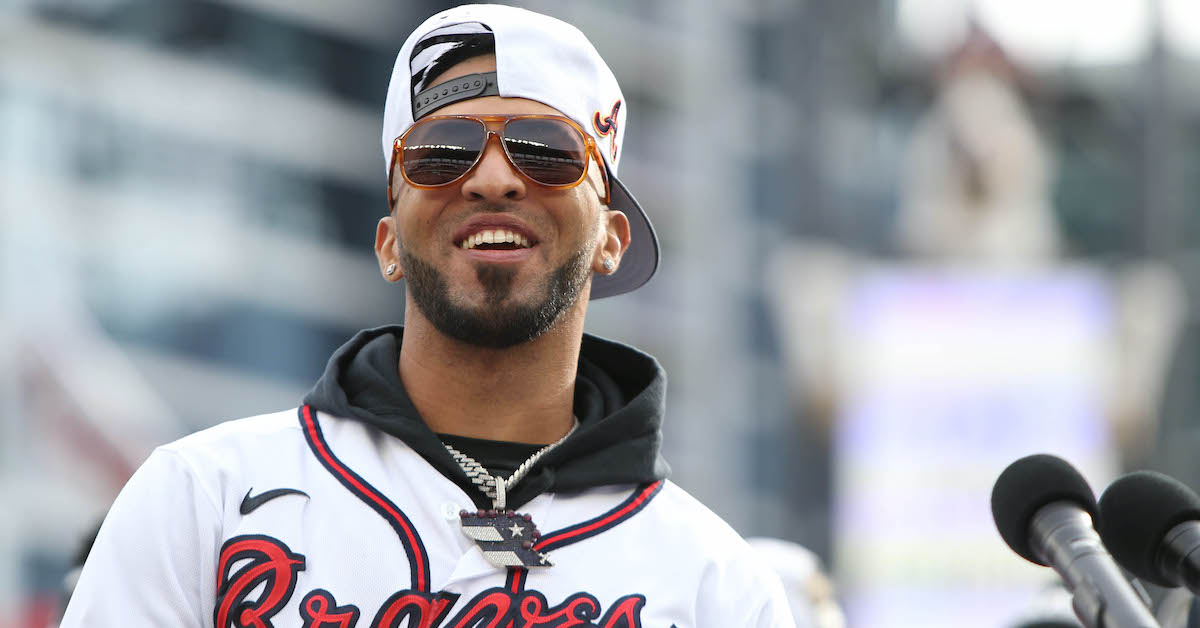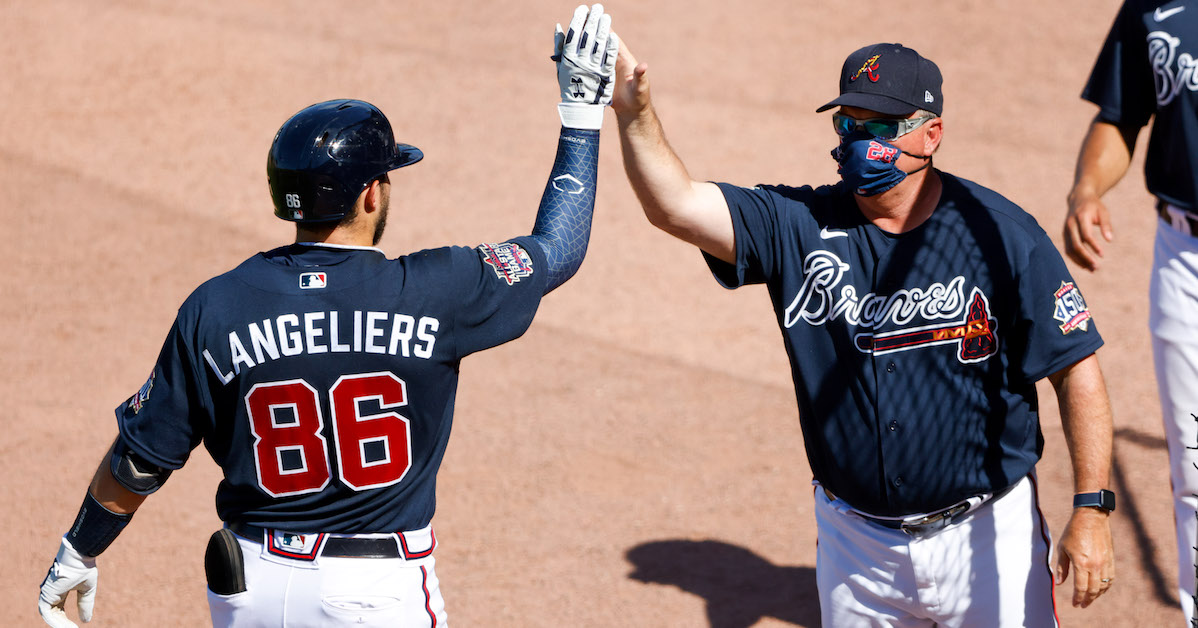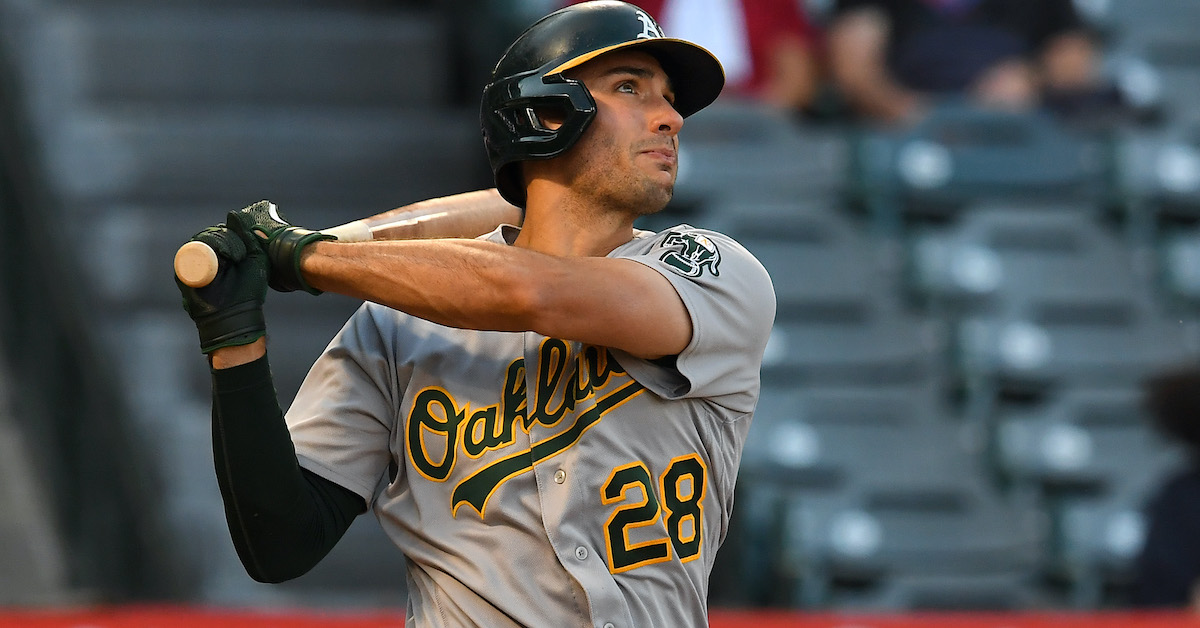Fred McGriff will likely be on the ballot when the Today’s Game Committee votes in December, and his candidacy is already creating a bit of a buzz. For good reason. The “Crime Dog” finished his career with 493 long balls — he won a home-run title in both leagues along the way — as well as 1,550 RBIs and three Silver Slugger awards. Moreover, he escaped the steroid era unscathed. Highly respected by his peers and fans alike, McGriff is viewed by many as deserving of a plaque in Cooperstown. That he never garnered more than 39.8% support in BBWAA balloting is seen as an injustice.
Which brings us to a player who received a paltry 3.8% in his lone year on the ballot. Was Carlos Delgado just as good, if not better than McGriff? WAR says he wasn’t — McGriff had 56.9 to Delgado’s 44.1 — but in terms of offensive bona fides, the numbers suggest he was. Here is a snapshot of what they did at the plate:
Delgado: 2,035 games, 2.038 hits, 473 HR, .280/.383/.546, .391 wOBA, 138 OPS+.
McGriff: 2,460 games, 2,490 hits, 493 HR, .284/.377/.509, .383 wOBA, 134 OPS+.
A clear majority of the people who weighed in on my recent “Who Was The Better Hitter?” Twitter poll sided with Delgado. The Puerto Rico-born slugger — himself the winner of three Silver Sluggers — won out by a count of 75% to 25%. Might the results have been different had the poll read “Who Was The Better Player?” That’s an interesting question. Would the voters have prioritized their respective WAR totals or, given that both were first basemen, focused primarily on metrics such as wOBA and wRC+?
Regardless of how Delgado’s overall career compares to McGriff’s, one can make a strong argument that he too should be on the forthcoming Today’s Game ballot. Even if he were to ultimately fall short — a strong likelihood given the candidates expected to be considered — Delgado deserves another look after being a one-and-done on a stacked BBWAA ballot. Admirable for his off-the-field efforts — his résumé includes a non-profit foundation and a Roberto Clemente Award — Delgado was one of the best hitters of his era.
———
RANDOM HITTER-PITCHER MATCHUPS
Slim Sallee went 2 for 5 against Sailor Stroud.
Gabby Street went 2 for 5 against Gus Salve.
Cy Seymour went 2 for 5 against Willie Sudhoff.
Mackey Sasser went 2 for 5 against Bob Scanlan.
Champ Summers went 2 for 5 against Lary Sorensen.
———
ESPN’s Top 100 Players of All Time — a ranking compiled by dozens of the Worldwide Leader’s writers and editors — has spurred a lot of debate. That’s understandable, and to a large degree, it was by design. Subjective listings of this ilk typically make for quality water-cooler discourse (an activity currently best-defined as “arguing on Twitter”).
Count me among those who rolled their eyes when perusing the rankings. No disrespect to the people who put it together, but in my humble opinion, some of the placements are borderline absurd. With the caveat that everyone on the list was a great player, egregious examples include Ken Griffey Jr. (No. 13) ranked in front of, among others, Rickey Henderson (No. 23), and Derek Jeter (No.28) ranked in front of Joe Morgan (No. 37).
Griffey Jr. had 77.7 WAR; Henderson had 106.3 WAR.
Jeter had 73.0 WAR; Morgan had 98.8 WAR.
There are numerous other examples of WAR being under-weighed, and narrative — ditto a certain amount of recency bias — being over-weighed. Again, lists of this ilk are subjective. Even so, Henderson was clearly superior to Griffey Jr, and Morgan clearly superior to Jeter. Even if you’re inclined to quibble with WAR, those things seem fairly obvious.
———
MLB and the MLBPA are currently at war, the former having implemented a lockout while the two sides negotiate a new CBA. With the scheduled start of spring training fast approaching, and progress seemingly at a standstill, fans are becoming increasingly impatient, if not frustrated and/or angry. With that in mind, I ran the following Twitter poll on Thursday afternoon:
With the caveat that bargaining is a two-way street, which side do you support in the CBA negotiations: MLB players, or MLB owners?
A total of 1,198 people weighed in, and the results spoke volumes. An overwhelming 94.5% voted MLB Players, while only 5.5% sided with MLB owners.
———
Craig Albernaz had high praise for Logan Webb when I asked him about the 25-year-old Giants right-hander on Friday’s episode of FanGraphs Audio. That shouldn’t come as a surprise. Albernaz is San Francisco’s bullpen coach/catching coach, and Webb is coming off a season where he won 11 of 14 decisions and registered a 3.03 ERA and 2.94 FIP over 148-and-a-third innings.
“Logan Webb is nasty,” Albernaz said on the podcast. “I think that’s it; Webby is just nasty. Just like any young pitcher, there is a maturation process of what they are, what they could be, and what they’re trying to be. He took some great strides last year [with] maturity, really getting confidence, and also taking ownership of his own development and how to attack hitters. Credit to Brian Bannister and our pitching guys, J.P. [Martinez] and [Andrew Bailey], for really pushing Webby all through 2020, and last year, to get him where he needs to be.
“His fastball — how it moves, how it plays in the zone — is elite. His breaking ball, his sweeper, is nasty, and it comes out of the same tunnel. His changeup is filthy, just his sell on it. The horizontal movement… it’s everything you want. He checks a lot of boxes. But what really made the strides last year, in my opinion, was his relentless attack of the strike zone. That’s a message [for] all of our pitchers. We want them to attack the strike zone. But Webby was just relentless on throwing all of his weapons in the strike zone, making hitters make decisions on pitches… He really stepped up for us down the stretch.”
Friday’s conversation with Albernaz also addressed Bannister, Buster Posey, Farhan Zaidi, organizational approaches, and more. The episode also includes Eric Longenhagen and Ben Clemens catching up on a variety of topics, including pitchers who throw both four-seamers and sinkers. The pod is well worth a listen.
———
A quiz:
Which player holds the record for most extra-base hits in a single season?
The answer can be found below.
———
NEWS NOTES
Jeff Francis has been elected to the Canadian Baseball Hall of Fame. A Vancouver native who pitched in the big leagues from 2004-2015, Francis spent the bulk of his career with the Colorado Rockies, who drafted him ninth overall in 2002 out of the University of British Columbia.
Triple-A schedules have been expanded to 150 games — up from 144 — beginning with the 2022 season. Minor-league teams last played as many as 150 games in 1964.
The Milwaukee Brewers announced that Josh Maurer will be joining their radio broadcast team and will be calling approximately 60 games. The voice of the Triple-A Pawtucket/Worcester Red Sox since 2014, Maurer will join Gary Cohen, Dave Flemming, Will Flemming, Andy Freed, Glenn Geffner, Aaron Goldsmith, Dave Jageler, Jeff Levering, Mike Monaco, and Don Orsillo as former PawSox broadcasters now in MLB booths. Additionally, Dan Hoard is now the radio voice of the Super Bowl-bound Cincinnati Bengals.
David Green, an outfielder for the St. Louis Cardinals and San Francisco Giants from 1981-1987 died earlier this week at age 61. Originally signed by the Brewers, the Managua native was sent to St. Louis in December 1980 as part of a seven-player deal that included Rollie Fingers, Sixto Lezcano, and Ted Simmons. Green is one of 15 Nicaraguan-born players in MLB history.
MLB has promoted five umpires to full-time status: Ryan Addition, Sean Barber, John Libka, Ben May, and Roberto Ortiz. The five — all of whom have worked 300 or more MLB games as call-ups — are replacing Fieldin Culbreth, Kerwin Danley, Gerry Davis, Brian Gorman, and Joe West, who have retired. Ortiz will be MLB’s first full-time Puerto Rican-born umpire.
———
The answer to the quiz is Babe Ruth, who had 119 extra-base hits in 1921. The Sultan of Swat produced 44 doubles, 16 triples, and 59 home runs that year.
———
Adrián González announced his retirement yesterday, officially closing out an MLB career that spanned the 2004-2018 seasons. A five-time All-Star first baseman, González logged a 133 wRC+ over a 10-year prime that saw him play for the San Diego Padres, Boston Red Sox, and Los Angeles Dodgers. His Red Sox tenure was in some ways confounding. González was targeted for criticism by certain members of the Boston media, this despite his slashing .321/.382/.513 with 42 home runs in his two years with the club. The subject of a May 2011 FanGraphs Q&A — González was an outstanding hitter.
——
Could Jack Harshman have become the first true, two-way player in the modern era? Looking at both his big-league numbers and his minor-league career, one can’t help but wonder.
Harshman played for five MLB teams from 1952-1960, and during that time he made 217 pitching appearances, 155 of them starts, posting a 69-65 record and a 3.50 ERA. A southpaw, Harshman was at his best in 1956 when he went 15-11 with a 132 ERA+ for the Chicago White Sox. That same year, he hit six of his 21 big-league home runs.
Harshman didn’t go up to the plate looking to hit singles, nor did he often look to move runners over with a well-placed bunt. He had just 18 sacrifices over his eight seasons, and 27.6% of his 76 career hits left the yard. Suffice to say, Hartman took healthy hacks.
His minor-league numbers were, in modern vernacular, sick. Harshman toed the rubber down on the farm, but he was primarily a slugging first baseman. In 1949, Harshman homered 40 times with the American Association’s Minneapolis Millers, and two years later he bashed 47 more with the Southern Association’s Nashville Volunteers. Enamored with his arm, the New York Giants converted him to a pitcher in 1952.
Harshman’s 1953 season, which he spent with the Volunteers, was his last in the minors. It was also his most eye-opening in terms of both-sides-of-the-ball production. On the mound, Harshman went 23-7 with a 3.27 ERA over 259 innings. At the plate, he slashed .315/.446/.631 with 12 home runs in 184 plate appearances.
Could Harshman have succeeded as both a pitcher and a position player in the big leagues? Possibly not, but he might have deserved an opportunity to try.
———
Dave Foutz was a two-way player for the St. Louis Browns and the Brooklyn Grooms from 1884-1896. Nicknamed “Scissors,” the Carroll County, Maryland native played 596 games at first base, 320 in the outfield, and made 251 pitching appearances. As a hitter, Foutz finished his career with a 101 wRC+. As a pitcher, he augmented a 124 ERA+ with a 147-66 won-loss record. Moreover, Foutz’s .690 winning percentage is tied with Whitey Ford for third-highest in MLB history among pitchers with at least 100 wins. Only Al Spalding (.795% from 1871-1877) and Spud Chandler (.717% from 1937-1947) were credited with wins at a higher rate.
Speaking of Spud, the erstwhile New York Yankees hurler had a truly remarkable career. It was relatively brief — nine full seasons, plus five games split between 1944-1945 during WWII — but what he did during that time stands out like a sore thumb. Along with his W-L record (yes, the recipe requires a large grain of salt) Chandler logged a 132 ERA+, won an MVP award, and was on six World Series-winning teams. In 1943, the right-hander from Commerce, Georgia allowed one earned run while tossing a pair of complete-game victories in the Fall Classic.
Even more remarkable is that Chandler didn’t make his MLB debut until he was four months short of his 30th birthday. He threw his final pitch at age 40 in the 1947 World Series. The last batter he faced was Jackie Robinson.
———
LINKS YOU’LL LIKE
Jim Trdinich is stepping down from his position as director of baseball communications for the Pittsburgh Pirates and will become the team’s first-ever historian. Jason Mackey has the story at The Pittsburgh Post-Gazette.
Baltimore Orioles outfielder Cedric Mullins had his breakout season while battling Crohn’s disease. Steve Melewski has the story at MASN Sports.
At The Athletic (subscription required), Dan Hayes and Michael Russo teamed up to tell us about Justin Morneau’s hockey Field Of Dreams.
Writing for Bally Sports, Gordon Edes expressed how helping minor leaguers is still a major problem in baseball.
Baseball America’s J.J. Cooper wrote about how NFL and NBA salaries have outstripped MLB salaries in recent years.
———
RANDOM FACTS AND STATS
In 1987, Barry Bonds had 611 plate appearances and walked 54 times. In 2004, Bonds had 617 plate appearances and walked 232 times.
Sandy Koufax had 11 shutouts in 1963. He fanned 306 batters that year.
John Tudor had 10 shutouts in 1985. He fanned 169 batters that year.
Ted Williams hit five home runs in games that ended 1-0. That’s a record.
Steve Gerkin went 0-12 with a 3.62 ERA for the Philadelphia A’s in 1945. It was the right-hander’s only big-league season.
John Coleman went 12-48 with a 4.87 ERA for the Philadelphia Quakers in 1883. The National League club finished the season 46 games in arrears of the Boston Beaneaters, with a record of 18-81-1.
Randy Hundley caught 160 games for the Chicago Cubs in 1968. He started 156 of those games.
The Detroit Tigers signed Hall of Fame catcher Ivan Rodriguez to a free agent contract on today’s date in 2004.
Players born on today’s date include Don Fisher, whose two big-league appearances came with the New York Giants in 1945. Fisher’s first outing was a five-inning relief effort in which he allowed four runs. His second was a 13-inning complete game shutout.
Babe Ruth (714) has the most home runs among players born on today’s date. Ruth also has the most stolen bases (123) and pitcher wins (94) among players born on today’s date.
Also born on today’s date was Bill Koski, whose career comprised 13 games and 27 innings for the Pittsburgh Pirates in 1951. The right-hander’s first professional experience came a year earlier when he toed the rubber for the Mayfield Clothiers in the Kentucky-Illinois-Tennessee League, a Class D circuit that was commonly referred to as the Kitty League.






